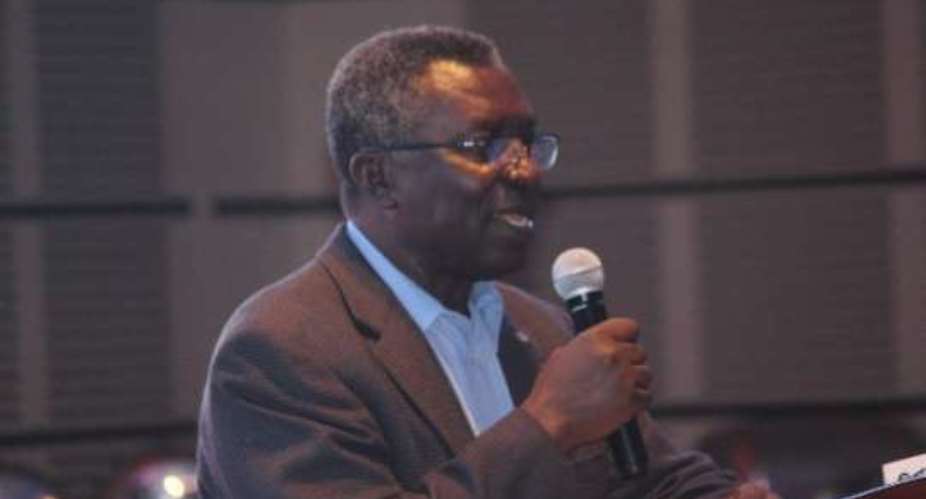Accra, June 27, GNA - The Ministry of Environment, Science, Technology and Innovation (MESTI) on Tuesday, signed a Technical Cooperation Project (TCP) agreement with the Food and Agriculture Organisation (FAO) for enhancing the sustainable management of Wetland resources.
The two-year project, worth about $390,000, is expected to address issues militating against lagoons through a holistic approach, with the overall goal of enhancing the management of these resources.
It is also to promote livelihood options and resilience of wetland communities in Keta and Ada in the Volta and Greater Accra Regions.
Professor Kwabena Frimpong Boateng, the Minister of Environment, Science, Technology and Innovation, said his outfit had been working with the FAO over the years to ensure the sustainable management of wetland resources, and thanked the Organisation for accepting to maintain its partnership in this area.
He said the project was of outmost importance to both the government and the various communities owing to their socio-economic and cultural benefits, and called for stakeholder support to jointly manage lagoon resources for food, nutrition security and resilient livelihoods.
Dr Abebe Haile-Gabriel, the FAO Regional Programme Leader for Africa and Representative to Ghana, commended the Government for recognising the importance of wetlands in its policy document, and the need to preserve their biological diversity and cultural attributes for present and future generations.
The FAO, he said, supported MESTI some few years ago to assess the issues affecting major lagoons in Ghana, with respect to the forestry and fishery resources status and use, human activities, institutional responsibilities and management practices.
He said that assessment had helped in identifying certain gaps and challenges associated with sustainable management of these resources, some of which included communal and individual pressures through over-exploitation, drainage, conversion, pollution among other conflicting which continuously threatened the environmental sustainability of lagoons.
He said the poor knowledge and perception of the ecological and socio-cultural values of lagoons and their associated watersheds, had also made the protection and management the preserve of a relatively few institutions and individuals.
According to him wetlands in Ghana were of an immense socio-economic importance to communities in their proximity, and to the wider society at large, because of the pertinent natural functions they performed, as well as the natural products they generated, while maintaining and preserving biological diversity as well as cultural attributes.
He said indigenous populations had traditionally benefited from the wetlands ecosystem as a source of the basic necessities of life, ranging from building materials, hunting, crop production and fishing, as well as a source of water.
He pledged the FAO's commitment in terms of supporting government's efforts in identifying and integrating climate adaptation measures for the agriculture sectors into relevant national planning and budgeting processes.
GNA
By Christabel Addo/Samuel Acheampong, GNA





 Dumsor: Energy sector ‘shepherdless’ – Nana Amoasi VII
Dumsor: Energy sector ‘shepherdless’ – Nana Amoasi VII
 Train accident: Four more grabbed and remanded
Train accident: Four more grabbed and remanded
 Gov't to consolidate cash waterfall revenue collection accounts
Gov't to consolidate cash waterfall revenue collection accounts
 Gov't to settle lump sum for retired teachers by April 27
Gov't to settle lump sum for retired teachers by April 27
 Former PPA CEO granted GH₵4million bail
Former PPA CEO granted GH₵4million bail
 Dumsor: The darkness has exposed you; you’ll go down as the worst in Ghana’s his...
Dumsor: The darkness has exposed you; you’ll go down as the worst in Ghana’s his...
 Dumsor: The ‘incompetent’ person provided a timetable whiles those who came to s...
Dumsor: The ‘incompetent’ person provided a timetable whiles those who came to s...
 Defend, ensure NPP’s good works are ‘sold’ and highlight the ‘bad’ state of the ...
Defend, ensure NPP’s good works are ‘sold’ and highlight the ‘bad’ state of the ...
 Bawumia will rank high ahead of Mahama in any anti-corruption test — Salam Musta...
Bawumia will rank high ahead of Mahama in any anti-corruption test — Salam Musta...
 NPP trying to bribe us but we‘ll not trade our integrity on the altar of corrupt...
NPP trying to bribe us but we‘ll not trade our integrity on the altar of corrupt...
